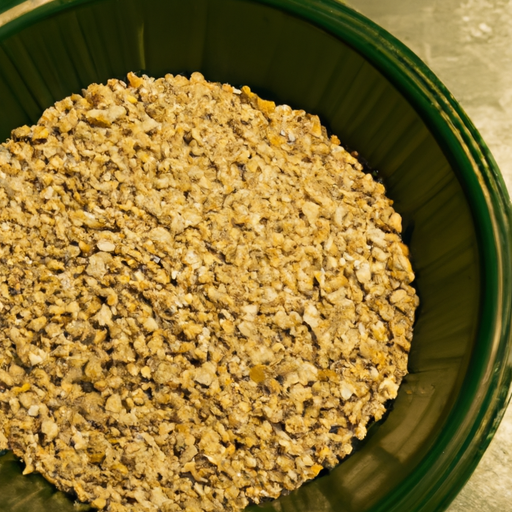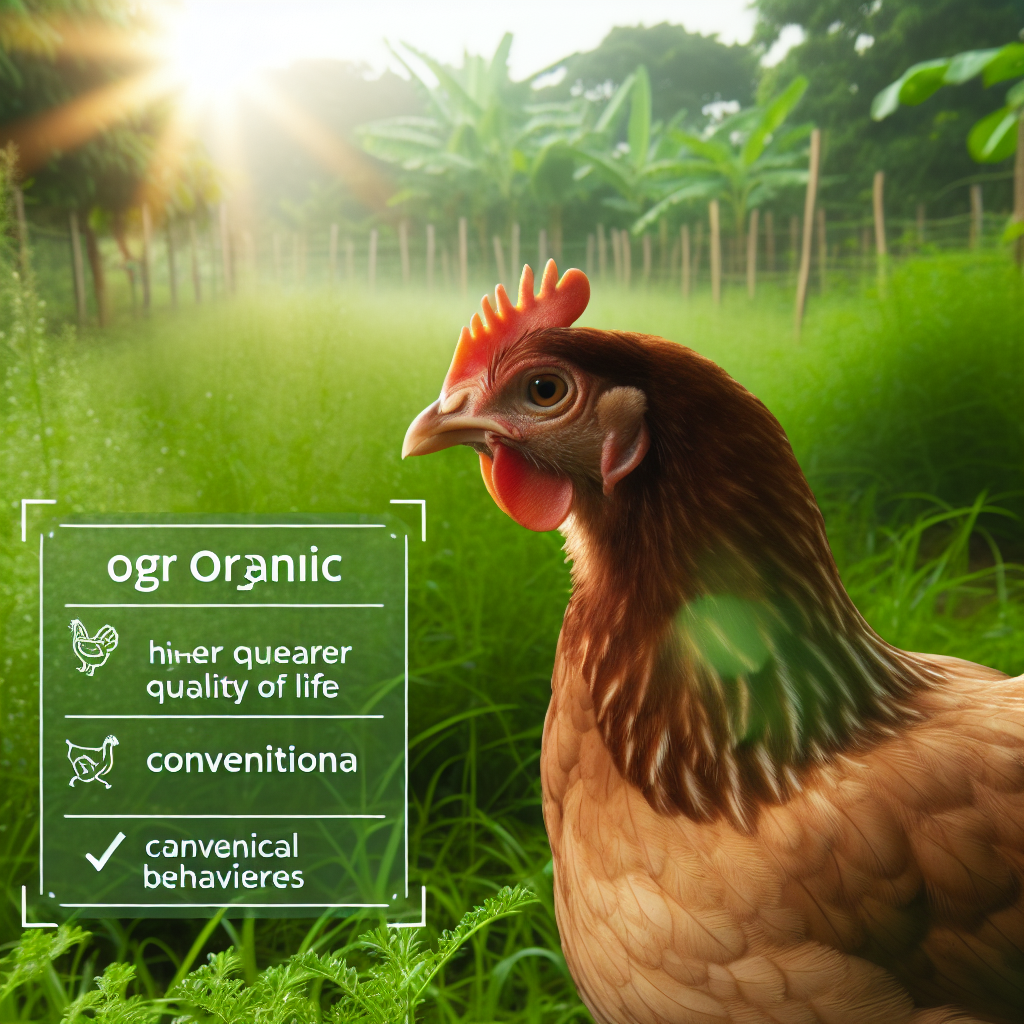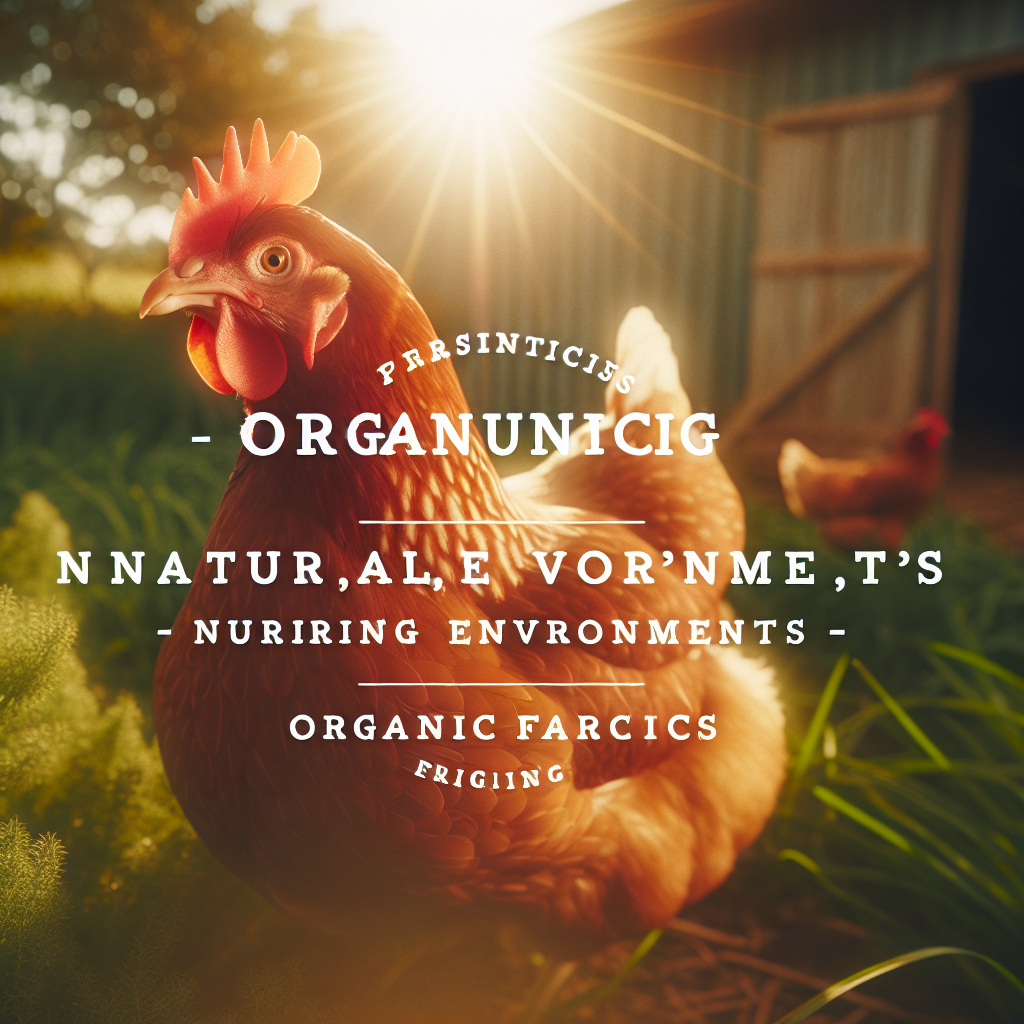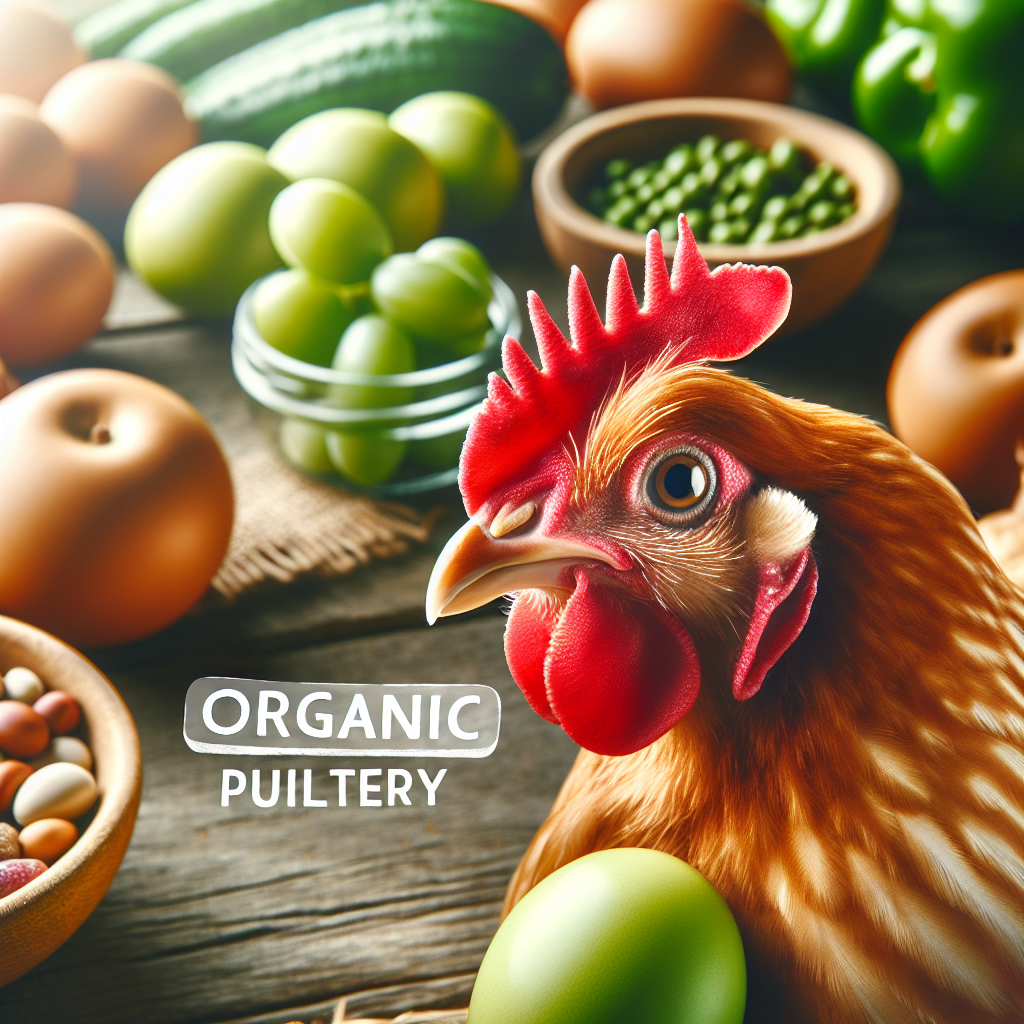Are you wondering how to guarantee that the feed you give to your chickens is truly organic? It’s important to ensure that the food you provide for your feathered friends is free from synthetic pesticides and genetically modified organisms. To achieve this, you can take a few simple steps, such as sourcing certified organic feed, establishing a relationship with a trusted supplier, and even considering growing your own feed. By prioritizing organic nutrition for your chickens, you can contribute to their overall well-being and produce eggs that are not only delicious but also genuinely organic.
Researching Organic Certification Standards
When it comes to ensuring that the feed you provide to your chickens is genuinely organic, it is crucial to understand the definition of organic feed. Organic feed refers to the feed that is produced using only approved methods and ingredients according to organic standards. These standards typically include guidelines that prohibit the use of synthetic pesticides, genetically modified organisms (GMOs), and chemical additives in the production of feed. By familiarizing yourself with the definition and requirements of organic feed, you will be able to make informed decisions when sourcing feed for your chickens.
To gain a deeper understanding of organic certification standards, it is worth exploring various organic certification bodies. Different countries may have their own organizations or agencies responsible for certifying organic products, including feed. These bodies establish and enforce strict regulations to ensure the integrity of organic food production. By familiarizing yourself with these certification bodies, you can look for their labels and certifications when choosing suppliers for organic feed.
In addition to understanding organic certification standards, it is essential to consult relevant government regulations. Government regulations play a crucial role in ensuring the production and labeling of organic feed. By familiarizing yourself with the specific regulations in your country or region, you can better assess the compliance of suppliers and the authenticity of their organic feed. Government websites, agricultural departments, or regulatory agencies can provide valuable information regarding organic standards and regulations.
Finding Authentic Organic Feed Suppliers
Finding authentic organic feed suppliers can be a daunting task, but there are several steps you can take to ensure the feed you provide your chickens is genuinely organic.
One essential step is checking for organic certification labels. Many organic feed suppliers will have third-party certifications or labels on their products to indicate that they have met the organic standards. Look for labels or seals from reputable organic certification bodies, such as the USDA Organic seal in the United States or the Soil Association Organic symbol in the United Kingdom. These labels serve as a guarantee that the feed has gone through the necessary inspections and met the strict requirements for organic production.
Researching the supplier’s reputation is another crucial step. Look for suppliers with a solid reputation for providing genuine organic feed. This can be done through online research, checking customer reviews and testimonials, and seeking recommendations from other organic farmers or backyard chicken owners. By gathering information about the supplier’s track record and reputation, you can make a more informed decision about whether to trust them as a source for organic feed.
To further evaluate the authenticity of a supplier’s organic feed, it is advisable to review testimonials and customer feedback. By reaching out to other customers who have used the supplier’s feed, you can learn about their experiences and satisfaction levels. Positive testimonials and feedback from other like-minded individuals or farmers who prioritize organic practices can provide valuable insights into the quality and authenticity of the feed provided by the supplier.
Inspecting Feed Ingredients and Composition
Inspecting the ingredients and composition of the feed is crucial to ensure it meets organic standards. Reading and understanding the ingredient label is an important step in this process. Organic feed should primarily consist of organic ingredients, free from synthetic pesticides, chemical additives, and genetically modified organisms. Look for ingredients that are clearly labeled as organic and avoid those with unfamiliar or non-organic names.
In addition to reading the ingredient label, it is important to verify the absence of prohibited substances. Organic standards typically outline substances that are prohibited from being used in organic production, including feed. Familiarize yourself with these prohibited substances and understand the potential negative impacts they can have on your chickens’ health and the integrity of the organic feed. By checking that the feed does not contain any of these prohibited substances, you can ensure its compliance with organic standards.
Analyzing the nutritional composition of the feed is another aspect to consider. Organic feed should provide the necessary nutrients and balanced composition required for chickens. Assess the feed’s nutritional content in terms of protein, carbohydrates, fats, vitamins, and minerals. Organic feed should provide a balanced and adequate nutrient profile to support the overall health and well-being of your chickens.
Visiting Farms and Suppliers
To gain firsthand knowledge and assess the practices of feed suppliers, conducting farm visits is highly recommended. Visiting farms allows you to witness the farming practices, assess the conditions in which the feed is produced, and interact with the farmers and suppliers directly. This can provide valuable insights into the authenticity of their claims and their commitment to organic practices.
During your farm visits, assess the farming practices employed by the suppliers. Observe whether they follow organic regulations and guidelines. Look for signs of organic farming, such as the absence of synthetic pesticides, natural pest control methods, and environmentally friendly practices. A transparent and open approach to farming, where suppliers are willing to showcase their processes and answer questions, can be an encouraging sign of their commitment to organic practices.
Interacting with farmers and suppliers is an important part of the farm visit process. Engage in conversations with them to gain a better understanding of their values, farming methods, and dedication to organic principles. Ask questions about their sourcing of organic ingredients, their handling and storage practices, and how they ensure the integrity of their feed. This interaction can help build trust and confidence in their products, allowing you to make an informed decision as to whether they are genuine organic feed suppliers.
Engaging in Direct Communication
Direct communication with feed manufacturers is a valuable way to gather more information about the authenticity of their organic feed. Reach out to them via phone, email, or in-person visits to inquire about their production methods and practices. When contacting feed manufacturers, it is crucial to ask for organic certification documentation. Request copies of their organic certification, including any audits, inspections, or accreditations they have obtained to verify their compliance with organic standards.
During direct communication, inquire about their production methods. Ask about their sourcing of organic ingredients, handling and processing practices, and quality control measures. Understanding how the feed is produced and the steps taken to maintain its organic integrity can provide valuable insights into the authenticity and transparency of the manufacturer.
Exploring Alternative Feed Sources
Exploring alternative feed sources can be advantageous when striving for genuinely organic feed for your chickens. Investigating homemade organic feed recipes is one option to consider. By researching and experimenting with homemade feed recipes using organic ingredients, you have control over the quality and composition of the feed. This can offer peace of mind and a higher degree of certainty regarding the organic nature of the feed.
Another alternative feed source is local organic farmers. Explore opportunities to collaborate with and support local organic farmers who may be willing to provide or sell organic feed. Get in touch with them to inquire about the availability of organic feed or the potential for establishing a mutually beneficial relationship. By supporting local organic farmers, you contribute to the growth of the organic farming community and can have greater confidence in the authenticity and quality of the feed.
Consider collaborating with other backyard chicken owners as yet another alternative feed source. By pooling resources and sharing knowledge, you can collectively source organic feed in larger quantities, potentially at a more affordable cost. Establish connections with other backyard chicken owners through local organic farming associations or online communities to explore collaboration opportunities for organic feed sourcing.
Participating in Organic Farming Networks
Engaging with local organic farming associations can be highly beneficial when seeking genuinely organic feed. Joining such associations allows you to connect with like-minded individuals who prioritize organic practices and can provide valuable insights into organic feed sourcing. These associations often offer resources, expertise, and support to their members.
Attending organic farming workshops and seminars also provides opportunities to expand your knowledge and network. These events bring together experienced organic farmers, experts, and industry professionals who can share their expertise on organic practices and feed sourcing. By participating in these workshops and seminars, you can gain valuable knowledge and establish connections with professionals who can guide you towards authentic organic feed suppliers.
Networking with experienced organic farmers is an excellent strategy to gain insights into their feed sourcing methods. Seek out opportunities to connect with experienced organic farmers either through local events, online forums, or social media groups. Engaging in conversations and building relationships with these farmers can provide you with valuable advice, recommendations, and even potential leads for authentic organic feed suppliers.
Performing Feed Tests and Analysis
To ensure the quality and authenticity of the feed being provided to your chickens, it is advisable to perform feed tests and analysis. This involves sending feed samples to certified laboratories that can conduct thorough tests to detect the presence of pesticides or contaminants. These tests provide objective insights into the quality and compliance of the feed with organic standards.
When sending feed samples for testing, make sure to select reputable and certified laboratories that specialize in analyzing organic feed. The test results will reveal if there are any traces of prohibited substances, pesticides, or contaminants in the feed, ensuring its compliance with organic standards. These test reports serve as evidence of the feed’s authenticity and can be a valuable tool in assessing the quality and safety of the feed.
Sourcing Organic Feed Supplements
In addition to providing organic feed, it is important to consider organic feed supplements to ensure the optimal health and performance of your chickens. Exploring organic supplements for poultry feed is a way to supplement the nutrient requirements of your chickens while maintaining organic integrity. Look for supplements that are specifically formulated for poultry and are certified organic by reputable certification bodies.
It is crucial to ensure that the organic feed supplements you choose are compliant with organic standards. Organic certification for supplements ensures that they are made from organic ingredients without the use of synthetic chemicals or additives. Verify the certifications and labels on the supplements, ensuring they are consistent with organic standards.
To make informed decisions about the organic feed supplements, seek the advice and recommendations of veterinarians who specialize in organic farming or poultry. Veterinarians with experience in organic practices can guide you towards suitable organic supplements that meet the nutritional needs of your chickens while adhering to organic standards.
Monitoring Chicken Health and Performance
Keeping a close eye on your chickens’ health and performance is essential in ensuring the effectiveness of the organic feed provided. By observing their overall health and behavior, you can detect any signs of illness or distress. Healthy chickens should exhibit active behavior, good feather condition, bright eyes, and normal appetites. Any deviation from these indicators may warrant a closer investigation into the feed they are consuming.
Assessing egg quality and production is another way to monitor the impact of organic feed on your chickens. Organic feed should contribute to the production of eggs with good shell quality, proper yolk color, and improved taste and nutritional content. Monitor the consistency and quality of the eggs produced by your chickens to gauge the effectiveness of the organic feed provided.
Reviewing growth and weight gain is also important in determining the impact of the organic feed on your chickens’ development. Organic feed should contribute to healthy growth rates and weight gain in your chickens. Regularly weigh and measure your chickens to track their growth progress and ensure it is in line with healthy development patterns.
In conclusion, ensuring that the feed you provide your chickens is genuinely organic requires a comprehensive approach. By researching organic certification standards, finding authentic organic feed suppliers, inspecting feed ingredients and composition, visiting farms and suppliers, engaging in direct communication with manufacturers, exploring alternative feed sources, participating in organic farming networks, performing feed tests and analysis, sourcing organic feed supplements, and monitoring chicken health and performance, you can create a trusted and reliable system for providing genuinely organic feed to your chickens. With these measures in place, you can have confidence in the quality, integrity, and impact of the feed on your chickens’ health and well-being.




